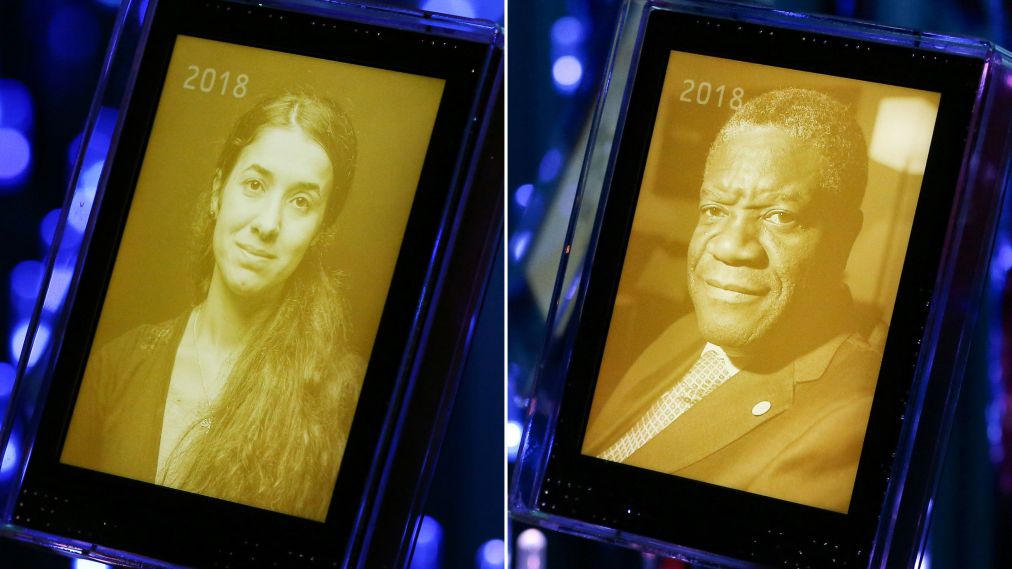There’s a certain irony that the Nobel Peace Prize—given Friday to those working to raise awareness of sexual violence in conflict—may well have been overshadowed by news of the confirmation of U.S. Supreme Court Justice Brett Kavanaugh, himself accused of sexual assault.
But among the tiny international community that has long toiled in obscurity and frustration in efforts to end rape and sexual assault in wartime, the prize was celebrated, and used as a chance to call for more work to be done.
The Nobel Prize went to Yazidi rape survivor and activist Nadia Murad, and Congolese gynecologist Denis Mukwege for their work in calling attention to rape as a tool of war.
“I’m so excited. It’s great,” says Zainab Salbi, a prominent Iraqi woman’s rights activist, journalist and author of Freedom is an Inside Job. But her joy was tempered by news last week that yet another Iraqi female activist—the fifth since August—had been murdered. “The point the Nobel is making is that when you speak up, it’s not easy or safe, and it makes a difference.”
Others pointed out how long it had taken the Nobel committee to recognize sexual violence in conflict, and the fact that in most countries critical legislation, funding and political will is still lacking.
It wasn’t until the Yugoslav wars of the late 1990s that rape and sexual assault were truly recognized by the United Nations as a crime against humanity. Until then, women were more commonly referred in literature as “spoils of war” and sexual violence was considered taboo.
Read the full article here.


 Christina Asquith
Christina Asquith
